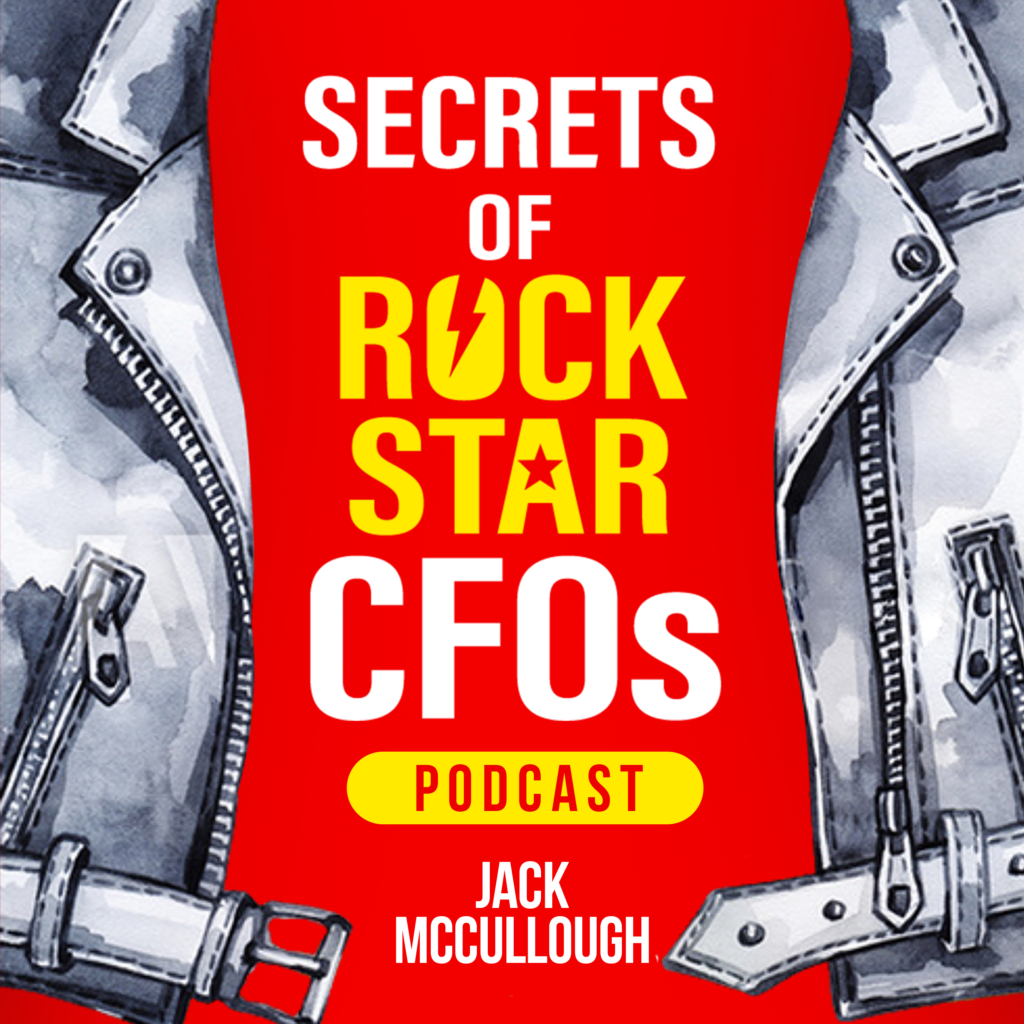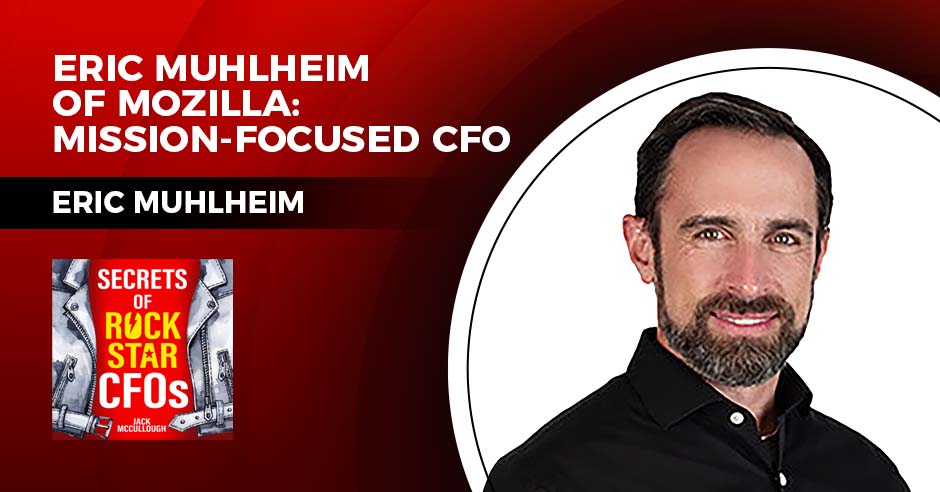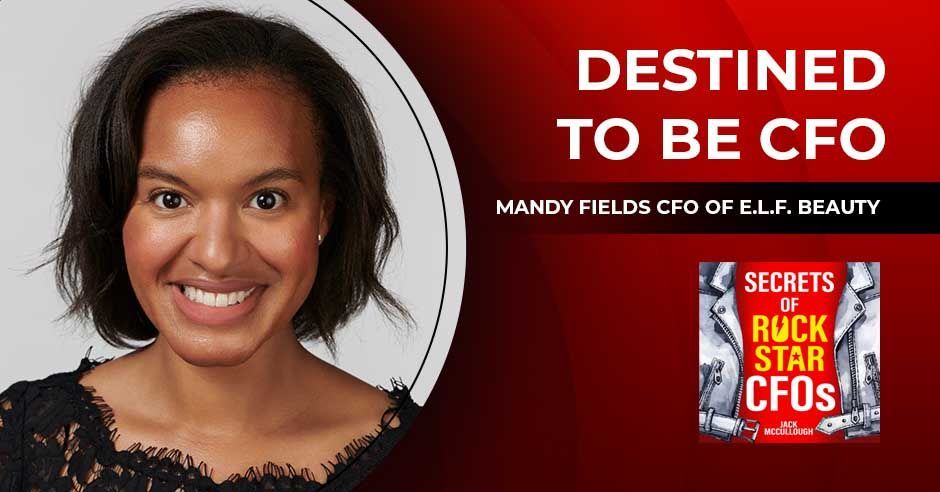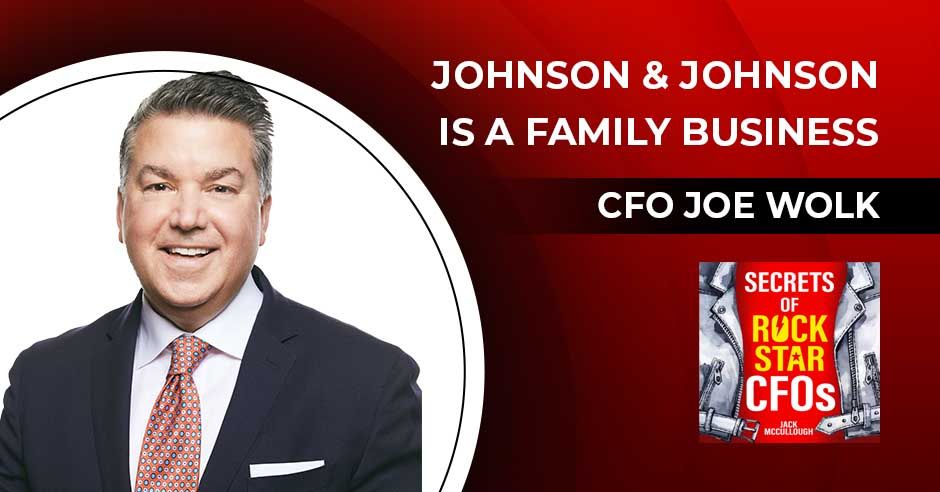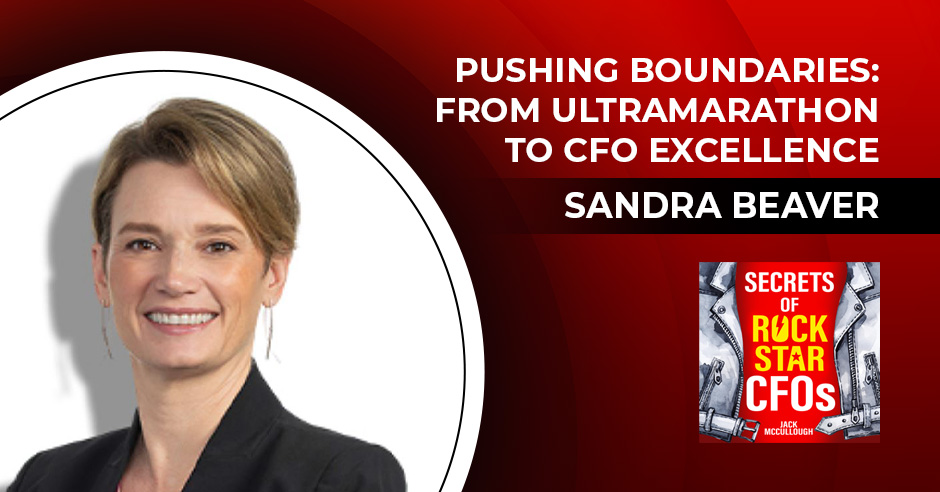Shannon Nash, CFO of Wing, is a top financial leader but she is not your typical CFO. Driven by a strong intellectual curiosity, she started her career as a tax accountant but is also a lawyer, a board member and most recently, a documentary filmmaker, in addition to her role as finance chief of one of technology’s most high-profile companies.
Shannon sat down with Jack for our new podcast “Secrets of Rockstar CFOs” to talk about her career and life paths, the innovative culture at Wing and the surprising mentors who helped her along the way. Listen by clicking below. The Q&A, lightly edited and trimmed for clarity, follows.
Listen to the podcast here
I’m thrilled to introduce you to our guest, Shannon Nash. She is the CFO of Wing and also serves on three corporate boards. She is also a film producer. Shannon, welcome to the show.
Thanks, Jack. I love that title. I never thought I’d be interviewed for a rockstar. My mother is going to be excited.
You joined Wing. I hadn’t heard of them, I have to admit, until you joined the company. It was one of the most interesting companies I’ve come across with the mission of bringing drone delivery to communities all over the world. What can you share about the company?
Wing is a commercial drone delivery company. The company has been around for a while. What you’ve heard and seen about commercial drone delivery in the Journal is that this is not the stuff that’s science fiction that we saw on “The Jetsons,” which was one of my favorite cartoons. This is happening and has been happening.
We’ve built a highly automated delivery system that, at scale, we think will be cost-effective for last-mile delivery of small packaged goods. We’re a subsidiary of Alphabet, which is Google’s parent company. We’ve been operating on three continents, including the U.S. and Australia. We’ve done over 350,000 commercial deliveries of small packages, things like household goods, meals, over-the-counter medicines and coffee. It is a popular thing to get delivered by drone. Not long ago, we announced a partnership with Walmart where we would be launching in two Walmart Supercenters in the Dallas, Fort Worth area to deliver items from Walmart to over 60,000 homes. We’re excited about that.
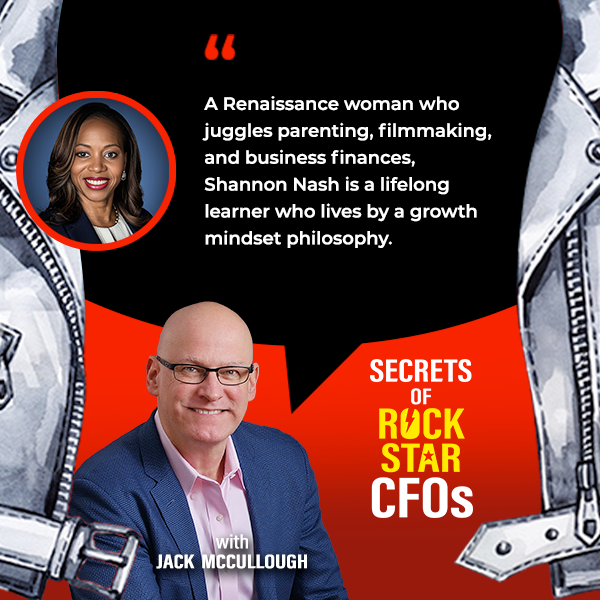
It’s not only a cool company with great technology, but you mentioned delivering medicines. It doesn’t just have the potential but is doing life-altering things for people who might live far away from major metropolitan areas and don’t have access to certain things. You must be proud to work for a company that can positively impact people’s lives.
Wing offers a sustainable alternative. We talk a lot about our environment. When you think about delivering a small package, we have those delivered to our homes in a big truck. When you think about the impact that it has on our environment and roads and the number of accidents, you start to see some compelling use cases for using a drone to do the same thing. There are cost impacts, but there are a lot of societal and environmental impacts that you get from using a drone.
The name of the show is “Secrets of Rockstar CFOs.” You’re more Renaissance woman than rockstar in a lot of ways. When I was reading your biography, you were a CFO for a hot company in Silicon Valley. You’re on three corporate boards. You’re a partner with a VC firm and a film producer. You are a consummate networker. You do a lot of community service work. You’re a mother. I’m wondering if you are Count Dracula and you don’t sleep. How do you find the time to do everything that you do?
I am a mom and a partner to my husband, Bill. That is my number one responsibility on this earth. Shout out to my three sons. They do make a lot of what I do worth it, and I want to impact their lives. My biggest role in life is to turn my three kids into productive members of society. That’s the number one job. Everything else brings me a lot of joy, but that is what I must get right.
I want to tell you this is not easy, but it’s also a privilege. At the same time, I don’t want anybody to feel sorry for my crazy life because I chose this, but it’s a privilege to do this. There are 24 hours in a day. Are there days when I don’t get my number one job right? Has the kid not gotten picked up on time? All those things have happened more than I care to admit.
It is about being organized. I spend a lot of time on calendars and looking at what’s built into the calendars. We have family calendars. I have a kid in college. We have his calendar. We have all of those things overlaid. Organization is key if you have a shot at trying to do a whole bunch of things at once. It is also important to have support. I have a supportive spouse. My mother is very supportive. She comes and goes, and lives with us for a month and goes and does her thing. I love her retirement life but she’s helpful to my life.
There are a lot of amazing things that I’ve had the opportunity to do. My grandmother passed away earlier this year. I think about her life, what it was like for her growing up in the ‘30s and the ‘40s, and what opportunities she did not have. I’m standing on her shoulders and the sacrifices she made so that her daughter could go to college and her daughter’s daughter could go to law school. It all started from a lot of her sacrifices.
When I feel like I can’t accomplish something or something is hard, I go back and think, “What would Carolyn have done in 1942? I’m sure it was hard for her, and she somehow persevered.” Why are you having problems and having your own pity party? You need to move on. Those are the things that help me power through when I have those moments.
That’s such a wonderful attitude. You’re lucky to have her. I didn’t know until I read an article about your husband in Fortune [that you’re married to Bill Nash, CFO of autonomous vehicle company Cruise].
It has been 27 years of marriage. We have a 25-year-old son. We both came into this marriage doing completely different things. It is interesting how we do similar things. He was an engineer when I met him. He went to the Naval Academy. He was an engineer double E major on a submarine. I was a lawyer. That was going to be our life. Life and careers don’t go according to plan.
You stole my next question because I did make the observation that you’ve both become successful CFOs in terrific Silicon Valley companies that have the chance to be iconic. Neither one of you went to it the conventional way, which for CFOs of my generation, I follow the conventional path. Study accounting undergrad, spend some time at one of the big CPA firms, work as a controller and get promoted to the CFO role. You both attacked it on different paths. I’d love to chat a little bit about your journey from tax accountant to law school to becoming a CFO.
I stay intellectually curious. I read and listen to a lot of podcasts. I consider myself to be a lifelong learner. I hope it keeps me young. As I was thinking about what I wanted to do with my career, I would get an opportunity to shadow somebody doing something interesting, and I’d be like, “I want to do that.” I know that’s not traditional for a lawyer. I’m like, “How do I learn those skill sets and, at the same time, continue on this career path.” Eventually, you get to a fork in the road, and you have to make a decision.
Earlier on in my career, I got the ability to practice tax and corporate law. You still had enough of an overlap between finance and numbers. I was always the lawyer who would be working on whether it was an IPO or an M&A deal. I wanted to look at the numbers and the deal while everybody else was looking at the legal language. That already was an a-ha moment. At some point, you’re going to have to go onto the business side.
I was able to go in-house to a company called Amgen, which is a biotechnology company. That gave me exposure to corporate America and how a finance department works. What is a controller? What does that even mean? I got the opportunity to see that at Amgen and understand how companies think about their global marketing and how they globally go to market because I got to be an expat in Switzerland and help with opening up the territories in Europe when I worked at Amgen.
All of that led me to steer myself back into finance because my first love was accounting. I became a CPA at a young age. I did love accounting, but I also had a father who wanted me to go to law school. You know how that is, especially in that generation. If your parents say you do it, you do it. I liked it, but I always loved accounting and finance from the beginning. That stuff was always interesting to me. When I got the opportunity to come back to those roots, I jumped at it.
When I wrote my book Secrets of Rockstar CFOs, one of the things that came up without my asking it necessarily all the time was the impact that mentors have had on CFOs’ careers. I interviewed some elite CFOs during the course of researching the book. Almost all of them had a mentor, formal or informal, who made a positive impact on their career growth. Did you have any experiences like that?
I don’t even think it’s possible for anybody to make it to the C-Suite without having a mentor, supporter or sponsor. There may be differences a little bit in the definition of those, but they had to have somebody or somebody like that in their life. Even if you’re talking about a family-owned business and somebody was “born into the C-Suite,” they still had that sponsor who trained and showed them the ropes. Everybody to get here has to have somebody who does that for them. The person in my career who did that, besides my parents, had to spend a lot of time molding me and making sure I got the right education.
There’s a gentleman by the name of Larry Bailey. He’s a CPA. He went to Wharton Business School at a time when there were few African Americans doing that. He became one of the first African American partners at a major accounting firm. He started at KPMG, which is interesting. That’s the firm I worked for, but he went on to work at PwC. He went on to work at all those places.
It was Peat Marwick.
I am old enough to remember that. It used to be called Peat Marwick. When I worked there, it wasn’t. Larry has helped countless professionals as a mentor, supporter and sponsor, especially when I was in school in the late ‘80s and early ‘90s. If you go through all the ‘80s and ‘90s, there are hundreds of people who would raise their hand and say, “I have been mentored and sponsored by Larry.”
This is what I tell young people all the time: To be mentored or sponsored doesn’t mean it’s somebody that has to work in your company. I’ve never worked in any company with Larry in 30-plus years, but what he did for me was he brought me into his network. He introduced me to people. He made sure I went to the right conferences and dinners. He made phone calls on my behalf. He took a vested interest in me succeeding in this career. I know I’m not alone. He’s done this for hundreds of people.
I know that, for him, it had to be lonely. To be the first is lonely, but he tried hard to make sure that what he did wouldn’t have been in vain. The good news is that Larry is still quite active and around. I still talk to him. I’ve had the opportunity to thank him countless times for the impact he’s made on my career.
The second person is more from an operational standpoint once I was in my career. It is the person who helped me think larger about how you get to the C-Suite. How do you become an operator? What do you think about running a business and the strategy of everything involved in running a business? It is Debbie Allen. A lot of people know her as a famous director, dancer, choreographer, actress and producer.
I luckily get to know the business side of her. I got hired to run her organization and got to understand how she thought about building an empire. She taught me that soft skills are what’s going to take you to the next level. I grew up where you have to be the smartest person in the room. You have to know more than everybody. If you do, that’s all you need to do to get the next promotion.
Work hard and that’s all it takes. As you’ve written about in your book, I know I’ve seen you write articles about what CEOs want from their CFOs. There’s so much of that that’s assumed. The other 90 percent is relationships, soft skills and your ability to operate, see trends and think about strategies. A lot of that is never taught to you in a school.
It wasn’t that long ago, within the course of my own career, that the best accountant in a company had a good shot at becoming the CFO, but now it is all of the things that you’re talking about. They say soft skills, but for a couple of finance and accounting people, they’re hard for me and perhaps for you too. I never had a lot of trouble with analytics and accounting. It came naturally to me.
In terms of becoming more empathetic and communicating more effectively, and even writing a simple email, I can do it now. At one point in my career, I was like, “I’m bad at this.” It’s easy for some people. Debbie Allen is one of your mentors. She’s a multi-talented person. Is it fair to say “Fame” was her big break?
“Fame” is what a lot of people know her from.
She showed me the fact that I always thought that about her. She was like, “If you want to run a business, you need to focus on these things.” All those things could be true about you. You’re analytical and smart, but if you don’t know how to sell and the strategy, it’s hard to be successful. You won’t be.
You are one of the few, although it’s a growing number, of Black women who are CFOs today. I’d like to get your insights. What has that journey been like for you? What have you learned? What can you maybe pass on to the next generation of leaders?
When you’re climbing the ranks and all of those things, I’m not sure I focused as much on that. I was more focused on how to get to the goals that I achieved. Where I am in my career and my personal life with my own kids, it is about what the legacy is. What are you leaving behind for the next generation to be helpful so that it’s easier for them than it was for you? What have you learned that can help that?
I’m spending a lot more of my time trying to mentor and help other professionals: “Get those soft skills earlier in your careers, and here’s why. Join this network earlier in your career here, and here’s why.” I think it’s also important that people see a representation of folks who look like them. That’s why it’s also important to me to continue to advocate for board diversity. There’s a long business case for board diversity. At this point, it’s been well-researched by many people.
Either a lot of people are lying, or it’s one of the most strategic imperatives a company can do. Even if you don’t feel it’s a good thing to do for society, if you want to grow your company, that’s one of the most effective things you can do.
It’s business imperative. I’m over trying to have those conversations and more about the conversations on what I can do to help get more people in the pipeline. At the end of the day, some of the arguments against why we should even focus on diversity that they miss out on is there’s an assumption that the diverse candidates are not qualified. That assumption is wrong. They’re qualified, but they’re not in the network.
Many of these opportunities are all about being in a network. There are places where people list their bios, but research has shown that the predominant way to get on a board seat is because you’re in somebody’s network. They nominate you, or they send your bio to the lead independent director or the head of the non-gov committee, and you get a phone call. If you are not in those networks, I don’t know how you ever make the shortlist. When I think about what I want to focus my energies on over the next whatever years, it’s making sure I try to help as many people get into networks and get a shot to be seen.
I’ve never seen a board position posted publicly. That’s not how it’s done. There are search firms that specialize in that sort of thing. For the most part, it’s who you know and how that person can help you. I also think it’s one of those things. Most people I know who are on at least one board of directors are on more than one. Once you get your foot in the door and you do a good job and develop those contacts, it can be self-perpetuating. It’s a matter of giving people that first opportunity to let them grow and flourish.
I applaud your commitment to creating a much more inclusive workforce. We’ll all be better for it in the long run, no doubt. I wanted to chat with you. I’m glad the FCC doesn’t regulate this show because this might be the dumbest question in history. They can take away my license. I’d love to chat about your experience at Wing. The dumb question is, what attracted you to the role? A lot of people would love to have your job.
I was truly a kid of the ‘70s. I was a dreamer as a kid. “The Jetsons” was my favorite cartoon. I loved “The Jetsons.” I would sit and dream about “Could that world ever be real?” When I heard about the Wing opportunity, the little seven-year-old girl got excited. Here’s the opportunity that you thought about when you were seven that you’d love to be a part of. Your skillsets are something that could be helpful to that opportunity.
What drew me to it was the mission of what Wing is doing. What kept me excited and continues to get me excited just like with most things is the people I get to work with, from our CEO to all of our C-Suite. It’s energizing to work around people who are smart but also get what we’re working for and enjoy working on this together.
When you find all of those things in one company, you hold onto it. We’ve all had long careers, and sometimes you get one person great, or you get some things that are great about the opportunities, but they don’t all line up like this one does. For me, it was about those things. What is the opportunity? What is the growth opportunity, both for the company and for the industry? This industry is in its infancy. We are working on something that is truly going to revolutionize the drone delivery industry. Being a part of that is exciting.
Our mission, quite plainly, is we’ve created what we believe can become the preferred mode of delivery for millions of small packages that are delivered around the world every day. Millions of small packages delivered around the world every day are delivered by our drone. That’s like, let’s wake up and be excited every day to go to work type of opportunities. That’s what drove me to Wing.
At times, we have already approached delivering 1,000 deliveries per day in a single market. We’ve already done that. We are building what we call the Wing Delivery Network. Think about that as a ride-share type of delivery network in the sky. We believe that in the coming years, we’ll be capable of making millions of deliveries at a lower cost per delivery than ground transportation in your truck can achieve for small packages at a much faster delivery rate. We’re talking about in minutes. That’s what makes me excited about my Wing tenure.
It was interesting to see how excited you are and the obvious pride you have in the company when you described it. I don’t regret asking that question. I almost didn’t think. It was obvious why you’d want to work there. That’s a game-changing company. How many of those does one get to work for in their careers? Not that many.
I have to ask a former tax accountant turned CFO now working at arguably the most innovative company in the world and one of the top three or four. You could debate Alphabet, Amazon and Apple. Those are the top three. What’s it like from a cultural standpoint to fit in with all that innovation? Clearly, you love it, but I’d love to go a little bit deeper.
Alphabet is the most innovative company on the planet. Alphabet has been supportive of Wing’s growth. That is one of our competitive advantages. We are in such an innovative culture and landscape. What’s interesting when people think about our technology and how it works is that people have this notion of the person sitting around with the joystick. They’re at the house or the store, and they’re doing all these things.
We are talking about autonomous drones. There’s nobody sitting around with a joystick. There’s somebody in a remote location who’s not at a store or house overseeing our technology system because the aircraft is flying itself. When I tell people that, that is an a-ha moment for them. They’re like, “This is something more innovative than I initially thought.”
I’m on a mission to share that as broadly and with as many people as I can that drone delivery has morphed way beyond what you see somebody doing in a park on the weekends. We’ve been working with DoorDash and Walgreens. We announced our partnership with Walmart. These are all well-known and well-respected brands. There is more to come, in our opinion. What we’re working on is expanding and scaling this to millions.
Your educational training is in finance, accounting and the law. It’s imperative that even in your role as CFO, you have to adopt a growth mindset. You can’t be the person that puts the brakes on everything. You need to be part of the solution.
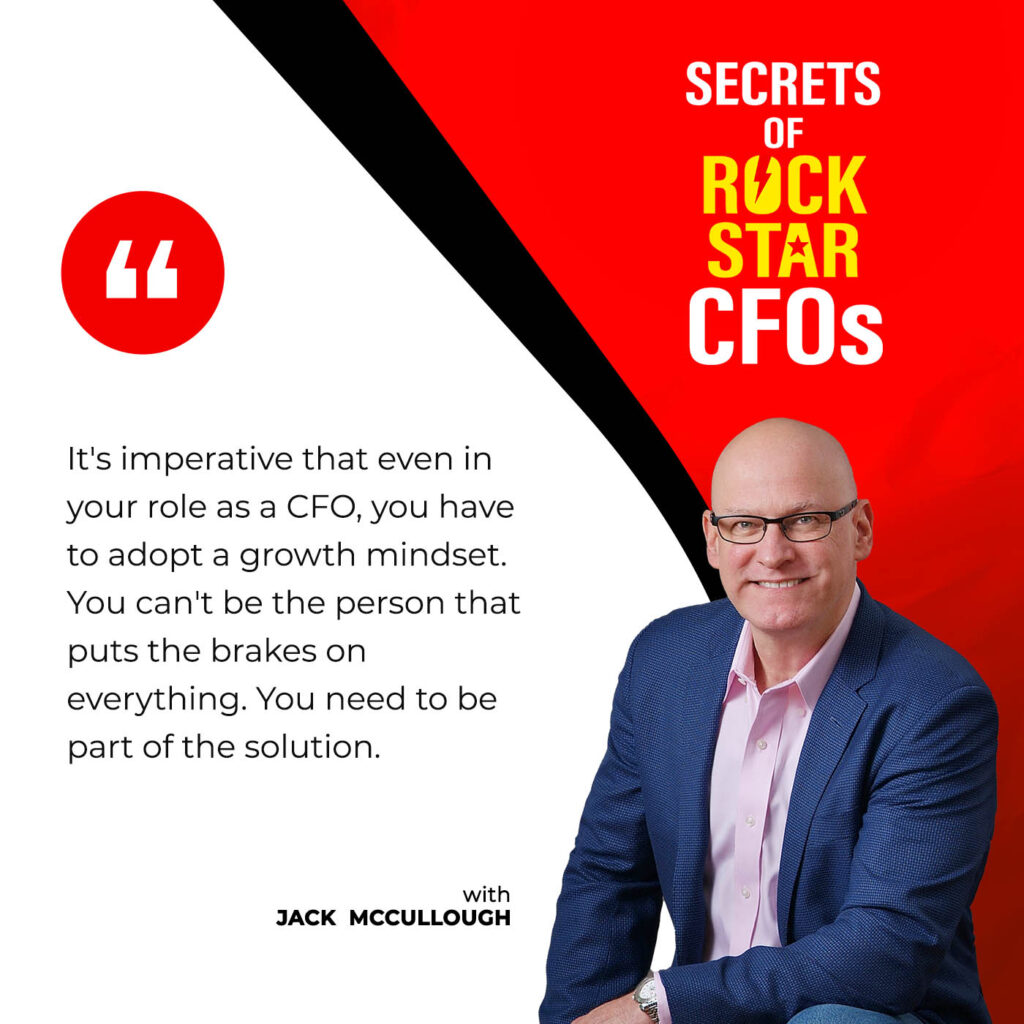
Most CFOs are spending a lot of time figuring out what are those metrics and levers to growth. It’s not about coming in and figuring out where to cut costs, and this department has this ROI, but this department has that ROI. That’s not going to get you the growth and the scale that you need. You have to come in with a bit of understanding. You have to understand your business in and out. You have to have a bit of a salesperson in you. You have to understand how to sell your system. You also have to be a bit techy and geeky. You have to understand your technology and how it operates.
In many ways, that growth mindset is also what your colleagues and co-C-Suite leaders depend on the head person in finance to help partner with them and think through they’ve got four or five different ways to solve what the next issue or those stumbling blocks is to get to the next like milestone or scale. Your job as a CFO is to help them think creatively through that and understand how each option has various financial impacts.
That’s my job. A big part of that is making sure that I spend a lot of time understanding their businesses and pain points. Wing does a good job at this, but one of the best things that happened early on in my career at a big company is they’re training for new people. This was a biotechnology company. They’re training new people as they send new people out in the GNA functions to ride with sales reps.
You think, “I’m a lawyer. Why am I in the car with the sales rep?” It is because you don’t understand the business. You’re sitting on a desk writing a contract or reading. You don’t understand what the people are doing in the field. How can you help advise the business if you don’t understand how the business operates and how it’s sold? When you have that growth mindset as a CFO, you’re spending all of your time understanding every facet of the business.
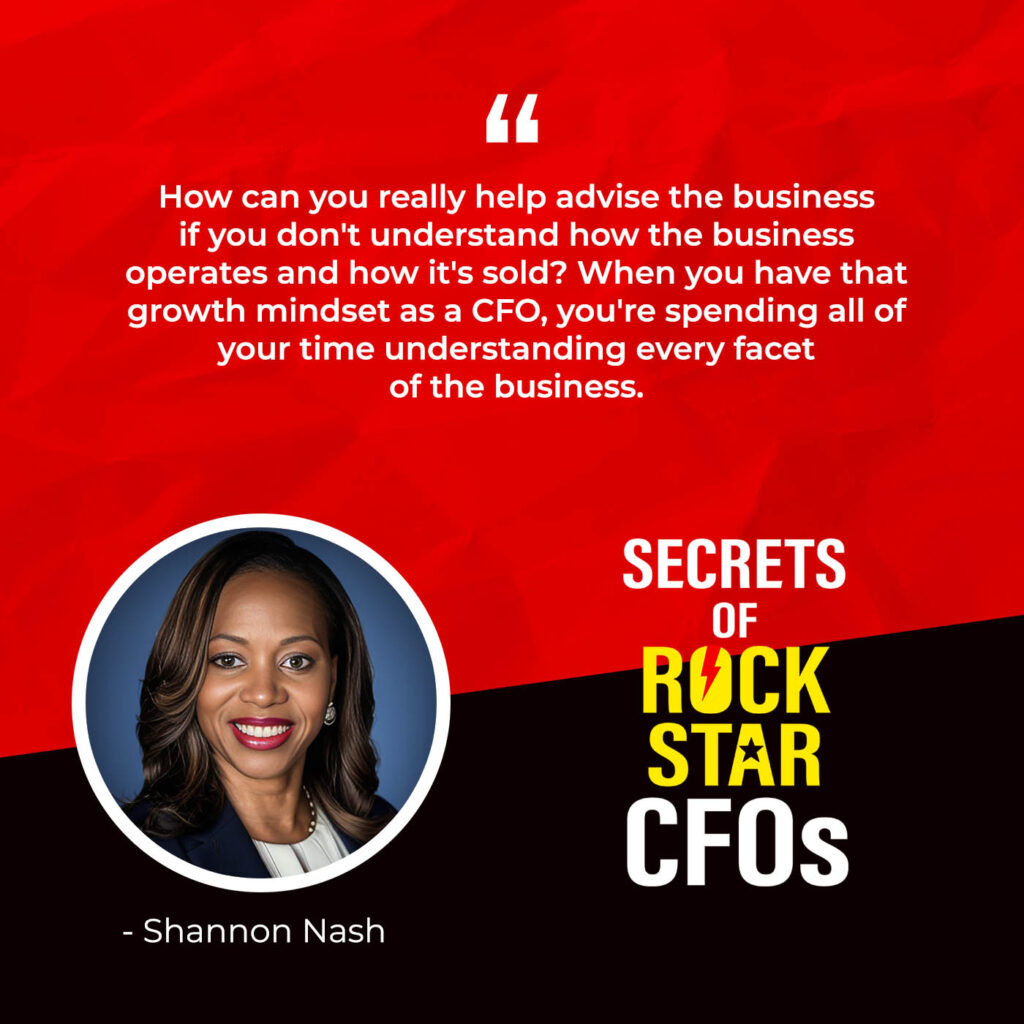
It’s amazing how many elite CFOs go on sales calls, and they know their customers. The days when you report what happened after the fact is gone.
I want to shift gears a little bit because it’s intriguing. There isn’t a plethora of CFOs who moonlight as movie producers. I believe you finished your second movie. What motivated you to pursue the path? One of your colleagues told me that your movie premiered in Tribeca, which is incredible. I’d love to understand the motivation and what you can share with us about the film.
The film was called “OnBoard.” We did have our premier screening during the Tribeca Film Festival, which was amazing. My passion for doing these types of things stemmed from the fact that I understood a lot about how that business worked because, earlier in my profession, I was the CFO of a production company. I understood how you brought these projects to market and the operations of it very well. In terms of my personal passion to want to go out and do a whole bunch of them, that was never my passion. It was my passion when it was about a topic I cared deeply about. My first film was on autism. Me and my husband have a 25-year-old with autism.
The second film is about board diversity. I’m passionate about it. It’s one of those things where I took the skillsets that I knew I had to get a film made, done, seen and all of those things. I applied it to something I care deeply about. That is when it’s like a winning formula. I’ve seen the power of what storytelling can do in terms of motivating and helping people. When those things all line up for me, those are the projects I like to get involved in.
Making movies is not for the faint of heart. It is a lot of work. It takes a lot of time. These things don’t happen in a couple of weeks. This can be years, years of weekend work, flying here, flying there, watching this, doing that and researching that. It is one of those things you have to be passionate about. At the end of the day, it’s for a bigger cause.
I’m excited about this documentary. It follows the story of Patricia Roberts Harris. One of the things I’m most proud of is that she’s the first African American woman to be on a board. She was on IBM’s board in 1971, but prior to us making this movie, if you google the first African American woman on a board, you would’ve gotten the wrong woman. Part of that is because our history is not well kept.
We started shooting the movie. We went to NASDAQ. We rang the bell there. There was a lot of press that came out of that. We talked openly about how this was wrong. If you google the first African American woman on board, you’ll get all of our hits. I’m like, “If nothing else happened, we have corrected what was in the search engine history.”
You found two things that you’re passionate about. Is there a third movie in your future?
Never say never, but I’m happy to try to continue to showcase “OnBoard” for a while.
I know you and Bill are raising an autistic child. I’m not sure if you know, my wife and I have two autistic sons. We had that in common. We have a few different challenges with the two. She had to give up her career. It was a little too much. You’ve been deeply involved in planning for it as best you can [but] autism is unpredictable. What can you say to help parents, especially working couples like you and Bill, who have high-powered jobs, to help them navigate these challenges? You have two other sons as well.
Jack, I did not know that. We’ll have to talk about that offline. These careers are long. There are plenty of periods in our career journey for both Bill and me where we had to make choices and changes in our own aspirations because we had to do things for our family. We had to make moves and potentially not take that job because even though it looks like a good opportunity, this is not a good opportunity for what you need to do for your child who has autism.
I don’t want to paint a picture that there weren’t a lot of bumps in the road because there were quite a few bumps in the road. Having support from family and friends is critical. You probably have had the same experience. You start meeting other parents and families who also have children on the spectrum. You start sharing information, support and therapies. All those things help change a lot in terms of helping you navigate raising this child who has a different way of having to go about some of the most ordinary things for others.
For me, family, community and friends made a big difference in our story. Jason is 25 years old. He lives in a group home. He was telling me about his work at Meals on Wheels. He was ecstatic about it. It was one of those things where sometimes I have to pinch myself because I remember when he was five. I remember the significant challenges, and now, at 25, I’m like, “Wow.” Even thinking about the fact that some of the doctors gave me zero hope that he would even speak at five.
The reality is all these stories are different. It’s a lot of work and disappointments that a lot of people don’t see when they see you day to day. For me, it was a lot of support and taking it one day at a time. When we’d have some setbacks, a friend of mine used to say, “It’s okay to have your pity party. You get one day. Your pity party has to end. You got to get to work.” That’s how I dealt with all the setbacks.
That’s all you can do. As parents, we’ll do anything for our children. There are a few things I wouldn’t do for the betterment of my kids. They have some different challenges than a typical child. That is devastating news to be told your son will never speak. He proved him wrong. Good on him.
I want to ask you about being married to another CFO. I was impressed. He referred to you as supportive of his career in the Fortune article. He referred to you as a mentor. Does that happen a lot in the Nash family dinners when you talk about your CFO-type problems?
Our kids would turn that off right away. They’ve all made it very clear that none of them wants to follow in our footsteps at all. I keep explaining to them, “This is a longer-life decision. You have no idea how you’re going to feel at 35.” It’s one of those things where we have a lot in common. Sometimes some of the financial discussions are a little bit much for the kids to hear at the dinner table because we don’t always agree on some of them.
I feel like I hit the lottery on this one to go through this life with a life partner. We both deeply care about a lot of the same things. He’s somebody that I can truly run something past, and there are no dumb questions to your spouse in the sense that he will certainly try to help me think through some of these problems and not make me feel any particular way or will call me out and say, “You need to get out of your feelings. This is not about you.” He’ll do that, which doesn’t always work well, but he’ll do it. I can’t believe we are where we are now. We met each other early on in life. We went to the same high school. Sometimes, we sit back and laugh. We could have never predicted the life that we have now.
Are you in the same graduating class?
As he likes to point out, I am older. No, but as I like to point out, I can’t help it that I’m smart because I’m six weeks older than him, and I got to start kindergarten at four. He didn’t get to start kindergarten until he was an old five-year-old.
I want to congratulate you. 2023 has been a milestone for you. You are recognized as one of Ignition‘s 50 most influential women in accounting and are in the top 100 in Accounting Today. You’re also one of the most influential women in Silicon Valley. I’m curious. What has this recognition meant to you?
It’s humbling to get those awards because, oftentimes, you feel like, “I’m the same person I was a few years ago.” It’s nice to be recognized. At the same time, what am I doing to make this a better place for other people? The focus is, how do I help? The saying is, “Lift as we climb.” How am I helping to lift? What am I doing to help other people in their journeys? You never know who’s inspired by what you say. I try to think about how I can be helpful to other people in their journeys.
That’s where my head is now. How can I be a good example? I’m rooting for many people to take it to the next level. Some of the proudest things that have happened to me professionally have been people who have worked for me and called me and said, “I became head of finance. I’m a CFO now too. I would love to keep talking to you and keep in touch.” I don’t think people realize when they call and tell me that, and they hang up, I have to take a walk around a little bit because those moments hit you hard. That’s what it’s all about.
What’s better in your professional life than knowing that you’re impacting the next generation of leaders? I want to conclude with a little bit of a fun thing. Although I’d say, the whole conversation has been fun, Shannon. I asked your team if there was a fun fact about you. I knew one on your own. I was going to mention Debbie Allen, but you beat me to that. You have an interesting thing that would fascinate me. Can you share that with the group?
I know where this is going. Yes, I do Zumba and I do something called U-Jam Fitness. When I say do it, I have licenses. If you haven’t learned anything from this interview, I’m one of those people who goes, “I’m a lifelong learner.” I’m like, “How do I get to hear all the Zumba songs all the time, even when I’m traveling?” The instructor said, “You have to be an instructor if you want to have access to the whole catalog.” I’m like, “How hard could the test be? What do I need to do?” I trained for that and made it happen.
Those types of things are when I get to do things for myself. When I go to those classes, it’s an hour and it’s all about you and having fun. Nobody knows what you do in the class. Nobody cares. Nobody needs anything from you. You’re able to focus on you. It gives me joy. Who doesn’t have a smile on their face when they hear music? It’s one of those things where it helps keep the day going.
Jack, I have prepared this for you. There’s so much music that I have to know because of Zumba. Now I know a lot of songs. In ending this for me, I put together a list of things that motivate me as my walk-off music. This is what I’m dedicating to you, Jack. I like to move it, move it. I like to move it. My life is about to keep on moving, like the hands of time. Click clock. Find your own way to stay. The time will come one day because nothing is going to break my stride. Nobody’s going to slow me down. I’ve got to keep on moving. Remember, when the going gets tough, the tough get going. If at first you don’t succeed, dust yourself off and try again. For me, I’m living the dream because sweet dreams are made of these. Who am I to disagree? I traveled the world and the seven seas. Everybody is looking for something.
I’m glad you knew that my knowledge of pop culture stopped sometime around 1988. You threw some songs in there that I would recognize. Thank you for that. What a fantastic way to end this conversation. I want to thank you. I know you’ve got a lot going on in your life. I appreciate you taking the time to chat with me. I know our audience is going to find your story extraordinary.
Thanks for having me. I’m such a fan of everything that you’ve built. I have said this before to you. Thank you for all of the CFOs that you have put together in our LISTSERV. I’ve met many people. I’ve gotten so much more than I feel I’ve given back. Thank you for all you do.

